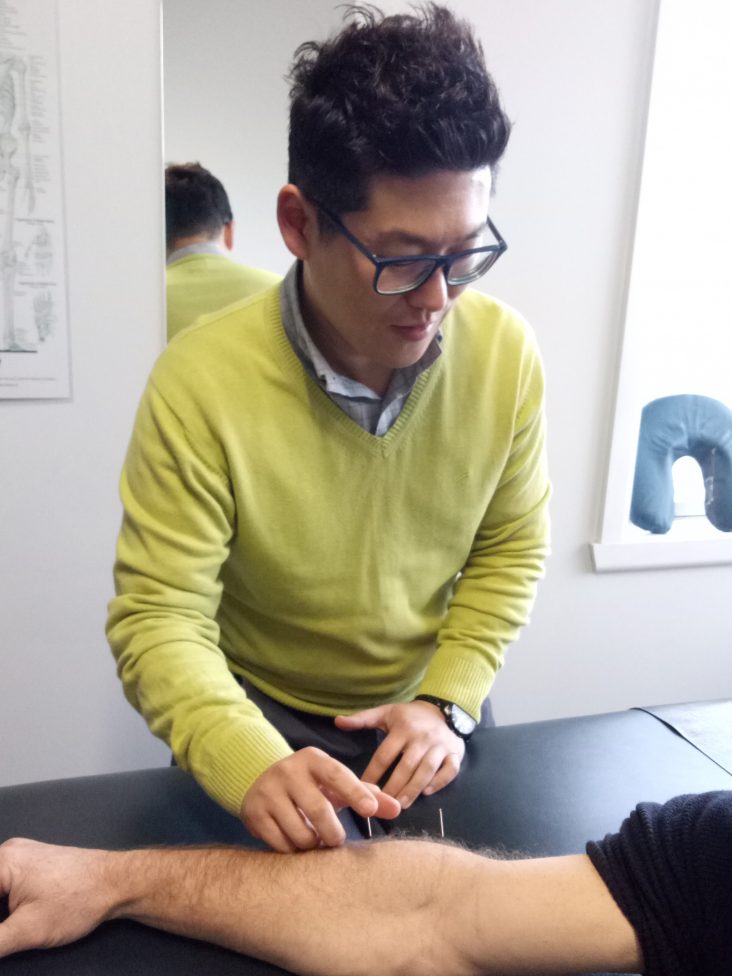What is dry needling?
Dry needling is an invasive procedure where an acupuncture needle is inserted into the skin and muscle. Commonly it is aimed at a painful or knotted part of a muscle which is known as a myofascial trigger point.
The aim of dry needling is to reduce pain and restore active range of motion, with an emphasis on improving tissue healing and restoring normal tissue function
Your physiotherapist may insert needles superficially (mostly with many needles) or deeply (usually with less needles) depending on assessment and condition.
How does it work?
The exact mechanisms of dry needling are complex, probably not fully known. However, there is an increasing number of studies which support the positive effect that inserting a needle has on the electrical and chemical communications that take place in our nervous system.
Dry needling into a certain body tissue causes a local twitch response which can be explained as ‘our brain reacts to the damaged tissue which is created precisely by the insertion of needles’. The reaction has been shown to reduce the concentration of pain inducing chemical substances.
What will I feel during a dry needling session?
Generally, needle insertion is not painful. You may feel a very slight, brief pain which is triggered by the local twitch response or sudden slight contraction of the muscle.
During treatment, and depending on the dry needling technique used, patients commonly experience heaviness in the areas of insertion, or overall relaxation.
Is it safe?
Dry needling is a very safe and widely accepted treatment. Serious side effects are rare with an incidence of less than one per 10,000 treatments. Your physiotherapists are trained to provide safe treatments. At PhysioFit Berwick, we use only individually packaged, single use, sterile needles.
Common conditions to treat with dry needling therapy:
Dry needling is an effective treatment for acute injuries, muscle spasms, chronic pain or muscle pattern imbalances caused by other injuries or issues.
- Low back/hip pain
- Neck pain
- Headache
- Knee pain
- Ankle/foot injuries
- Shoulder pain
- Elbow pain
Written by physiotherapist Nando Lee, who is highly experienced in dry needling techniques. If you have any questions regarding dry needling please contact Nando at the clinic on Mondays and Thursdays, or ring for an appointment.

